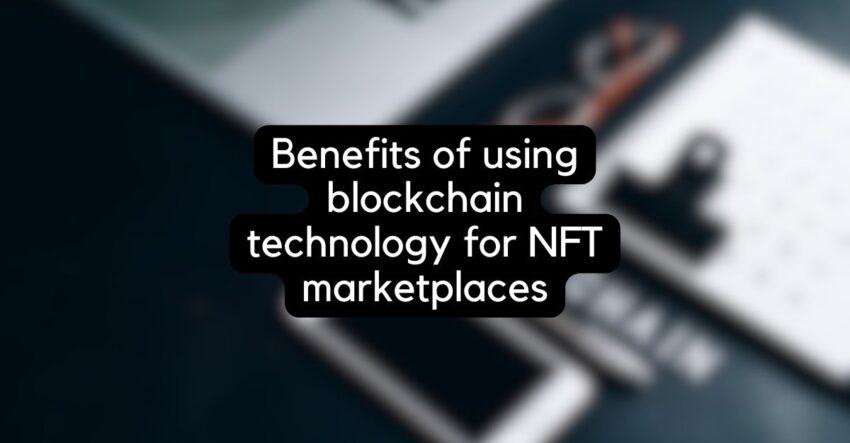Blockchain technology is revolutionizing the way we think about digital asset ownership and trading. Blockchain technology, in the form of non-fungible tokens (NFTs), provides a secure, immutable and transparent platform for buying and selling digital assets. The use of blockchain technology in NFT marketplaces has many advantages, including greater security, transparency and liquidity. In this article, we will look into the benefits of using blockchain technology for NFT marketplaces.
Read More: Top 10 Industries Blockchain Could Transform in the Future
Security:
One of the biggest benefits of using blockchain technology for NFT marketplaces is modern security it provides. Blockchain’s decentralized design ensures that data is securely maintained and transactions are validates by multiple parties. This reduces the risk of fraud and criminal activities, thus increasing the security of users and their assets.
Transparency:
Due to its transparency and security, blockchain technology is becoming increasingly popular for non-fungible token (NFT) exchanges. Blockchain technology enables digital asset authentication and verification as well as tracking of their ownership and origin. This implies that buyers and sellers can be confident that the digital asset they are buying or selling is legal and transferable. Also, since blockchain data is immutable and permanent, no one can tamper with it or alter it in any way.
Immutability:
For non-fungible tokens (NFT), blockchain technology provides an immutable record of ownership and provenance. As a result, it is especially beneficial for NFT markets. Blockchain’s immutability ensures that NFTs’ ownership records cannot be alter or tampered with, which is critical to protecting the safety and integrity of the market. In addition, the use of blockchain technology allows a more transparent picture of the entire market, with all transactions open to public inspection and study.
Low fees:
The most attractive benefit of using blockchain technology for NFT marketplaces is the low platform fees. Transaction costs associates with blockchain are significantly lower than those associated with traditional payment methods such as credit cards or wire transfers. As a result, customers can save money on transaction costs, allowing them to buy more NFTs or keep more of their profits.
Decentralization
Decentralization is an important aspect of blockchain technology and its use in the NFT market. Decentralization implies that the marketplace is not managed by a single entity but by a network of players. This network is secure by a distributed ledger shared by all participants. This configuration prohibits any single player from gaining control of the marketplace and enables users to securely trade their digital assets without relying on a central authority.
Improved Scalability:
NFT marketplaces can scale more effectively thanks to blockchain technology. This is because technology enables more transactions to be handle in less time. This will help speed up transaction completion, making it easier for users to acquire or sell their preferred assets.
Finally, the use of blockchain technology for NFT marketplaces has several advantages over traditional markets. NFT marketplaces can use blockchain technology to provide secure and transparent transactions, immutable records, and real-time tracking. Additionally, smart contracts on the blockchain enable self-executing contracts and automated processing. These features make the blockchain technology an ideal choice for NFT marketplaces, providing an efficient and secure platform for users.

